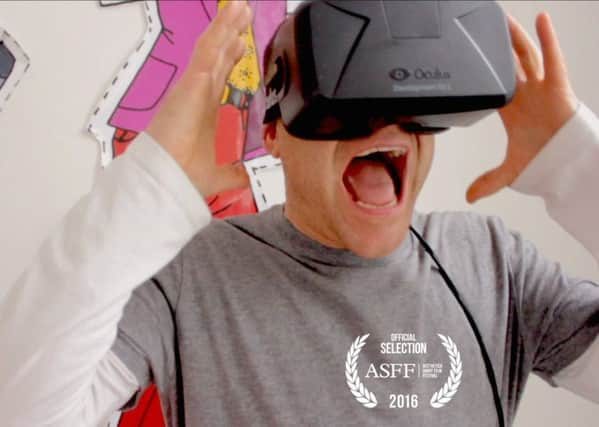Regretful behaviour


The quasi-institution NFFR is a vehicle the artist and academic uses to explore the nature of regret.
“Previously working in neuroscience, I studied how the brain computes the difference between wanting and liking. Wanting what we no longer like often leads to regret and I began to wonder if there was a specific role for regret in addiction,” she explains. “I really wanted to know if we could get addicted to regret.”
Advertisement
Hide AdAdvertisement
Hide AdHer film under the title The National Facility for the Regulation of Regret stars Coronation Street actor Joe Duttine and was shot at Bank Street Arts where Genn had an artist’s residency in 2015.
“The project started as a gallery installation and has evolved in different ways,” she says. “In September at Festival of the Mind we introduced The Regret-o-tron, a booth in the Millennium Gallery, where you could have your predisposition for regrets analysed.”
It purported to be a diagnostic test developed by boffins at the NFFR to “recognise, measure and quantify regrets” and would normally cost hundreds of pounds but was being offered to visitors for free.
“It was really a prank which had contrasting responses,” she reports. “Some people complained but others laughed a lot. It got a reaction which was the aim, to get people to think about regret and whether it’s become a compulsion.”
Advertisement
Hide AdAdvertisement
Hide AdIn March she will be taking the film to South by Southwest, the interactive media, and music festival and conference in Austin, Texas, and talking about the concept.
Rachel Genn grew up in Gleadless (her family ran a butcher’s shop on London Road) and after All Saints School took a degree in psychology which led to a career in neuroscience, working at Kings College London and The Maudsley, and she was a Royal Society Fellow at the University of British Columbia in Vancouver.
After 17 years she returned to her home city and joined the MA writing course at Sheffield Hallam University and completed her first novel, The Cure, published in 2011.
In 2014 she became a Leverhulme Trust-funded artist-in-residence, in the department of psychology at the University of Sheffield which was where the National Facility for the Regulation of Regret came into being as a quasi-institution.
Advertisement
Hide AdAdvertisement
Hide AdAccording to Genn: “The NFRR is home to fictional characters with regret-related disturbances where their stories are narrated by their personal possessions.”
In September the mother of two joined Manchester Metropolitan University as a lecturer in creative writing at the Manchester Writing School and she remains an honorary researcher in the department of psychology at the University of Sheffield
And she is also completing a second novel, What You Could Have Won, “tracing the early life of the head of the NFFR”.
“All these projects are intertwined, they’re satellites of the basic concept.”
ASFF 2016, which took place earlier this month in York, is a celebration of independent filmmaking and showed 400 short films from across the world.